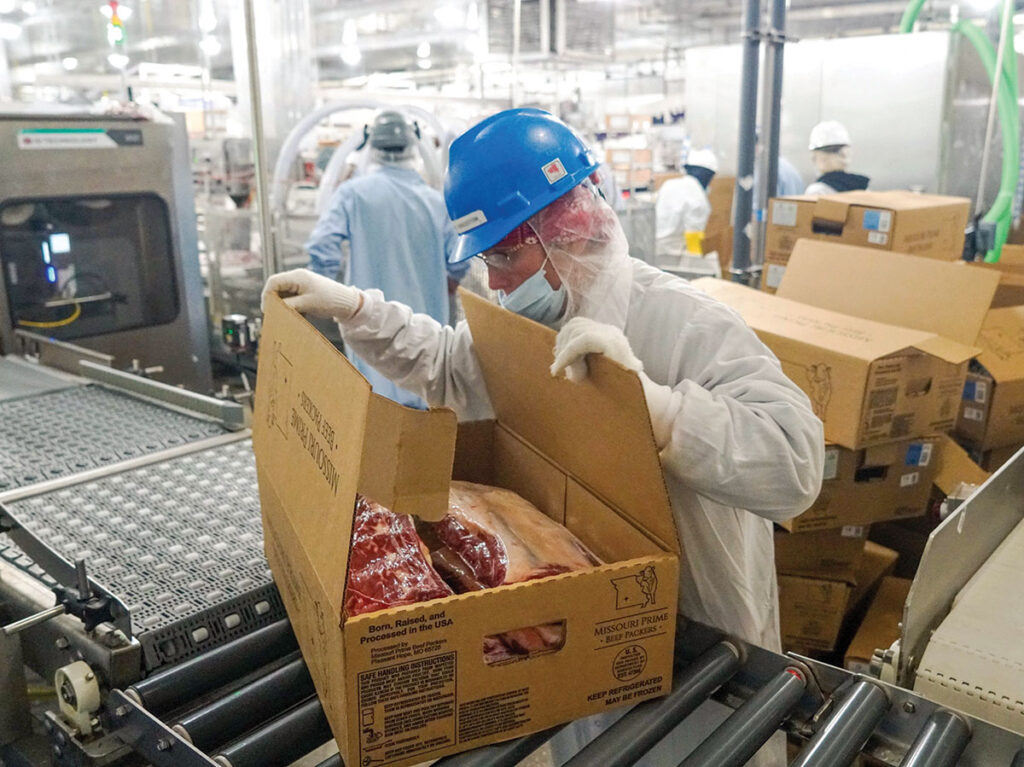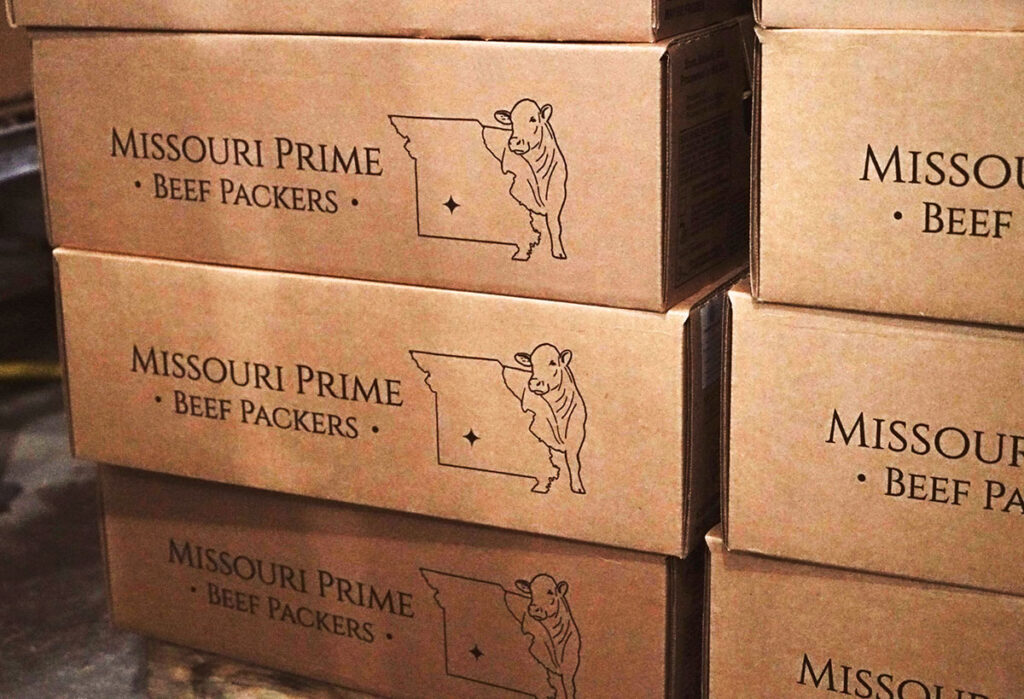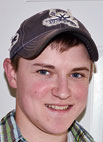
Missouri Prime Beef Packers spearheads a Missouri-born, grown, finished and processed beef program
PLEASANT HOPE, MO. – The Ozarks has a reputation for being cattle country. Thousands of acres of pastureland, an abundance of forages and a generally favorable climate make the area ideal for cattle. However, cattle born on operations in the Ozarks generally don’t stay in the Ozarks. Instead, calves are sent to out-of-state feedyards and packers.
When Missouri Prime Beef Packers came to Pleasant Hope, Mo., that tend began to change. With the promise of processing as many as 500 head a day and the promotion of a Missouri-born, raised, finished and processed beef program, work began on a defunct hog processing facility.
In early 2021, Missouri Prime opened the renovated facility and has met or exceeded production goals. It has also launched Show Me Beef into 1,700 retailers in Missouri, Kansas, Arkansas and Oklahoma.
“This is a shift in the mindset,” Hyrum Egbert, Missouri Prime CEO, said. “Typically, this is an industry that is very segmented. You have the cow/calf producer, the feeder, the plant, then the down-the-road processing. We are bringing that together.”
Working directly with producers, Missouri Prime, which employs about 350 people, sources grain-finished, Prime- and Choice-grade cattle from Missouri producers for the Show Me Beef Program.
“We are one of the largest cow states in the nation, and there are a lot of good genetics here, but it’s just trying to get them to stay here,” Jay Holmes, vice president of procurement, said. “There hasn’t been a reason to stay here before. To go those directions, you have to have a full pot. Here, you can have a pot load or a gooseneck.”
Jay works with producers to determine which calves will make the grade for the Show Me Beef program, allowing some producers to finish their cattle for the first time.
“Those Prime and Choice cattle are what our partners are asking for,” Jay explained, adding that cattle must be on feed for at least 150 days. “Some of our farmers produce those cookie-cutter calves we look for.
“we are one of the largest cow states in the nation, and there are a lot of good genetics here.”
— Jay Holmes, Vice President of procurement
“We give producers the opportunity to really see what their cattle can do. We aren’t looking for grass-fed cattle. We’re looking for good, fat cattle.”
Missouri Prime and Show Me Beef has quality-specific requirements, such as ribeye area, carcass weight, marbling and age, but are not breed-specific. All breeds, except dairy breeds, are a part of the Show Me Beef program.
“It Show Me Beef, so it’s a brand choice, not a breed,” Jay said.
After harvest, Missouri Prime team members break down a beef carcass into primals.
“That’s the chuck, rounds, rib and loin,” Hyrum explained. “Workers will then start breaking it down that subprimal. We aren’t going to cut steaks; it will be a whole ribeye. Then we will put it in a Show Me box and send that out to SGC Foodservice, our partner, and to Price Cutter. They will cut it and put it out in the case.”
Missouri Prime works with about 100 farmers and ranchers through the Show Me Beef program.
“That might be a guy who has 40 cows,” Jay said. “Some might buy Missouri-born and raised cattle, then finish them. The guy who wants to finish out 10 to 15 head has an outlet now for those Prime and Choice animals.”
“We are in the infancy stages of the program,” Hyrum said of Show Me Beef. “These relationships that Jay and Clay (Barnhouse, director of procurement) are building with farmers and ranchers are long-term. Whatever it takes, we want to get to that point with them.”
Hyrum estimated that 85 percent of the cattle processed at Missouri Prime are from herds in Missouri and carry the Show Me Beef label. Cattle not making Prime or Choice at harvest are sold to other distributors and are not part of the Show Me Beef Program.
“We want consumers to go to the store and see the brand and for our producers to say, ‘Hey, I fed cattle for that program.’ They own it at the end of the day,” Jay said, adding that beef from the Pleasant Hope plant reaches beyond the Ozarks. “We get into Kansas City, St. Louis, and people are calling from out-of-state because they like the story. There are not many of us out there doing it locally and within the state. We are doing something here that the other guys can’t do. They don’t have a packing house in Missouri, and they don’t want to tell the story of their beef. We’re telling the story of the Missouri cattleman. I think the sky is the limit for us.”
“It’s a true farm-to-fork story,” Hyrum added.
“We want to be the farmer’s friend and their partner,” Clay added.
In addition to finished cattle, Missouri Prime also processes mature cows.
“About 90 percent of those cows are from Southwest Missouri,” Clay explained, adding that they prefer groups instead of one or two animals like the finished cattle. “We look for a good fleshing cow, no downer cows.”

“We aren’t going to be the dumping ground for downers, cancer-eyed cows, thin cows,” Jay said. “We aren’t going to be those guys.”
Hyrum explained while Show Me Beef provides top-quality beef, there remains a need for commodity beef.
“That is going to go into ground beef and trimmings,” Hyrum said. “What we are trying to do is extrapolate that value. Instead of everything going to the trim bucket, we can separate things that can go into food service outlets, like the tenderloin and ribeye; there’s a lot of use for those cuts. We’re reassessing what we can recatch in value. There is still a lot going into ground beef, but we are doing some changes here.”
He added other beef items not commonly consumed in the U.S., such as livers, hearts and tongues, are exported to countries with a growing appetite for beef.
“A lot of what we need to do is optimize the carcass, getting the most value out of that animal,” Hyrum said. “In the past, we haven’t had such a connected global economy, but we have that now. One of the things we have now are these drop credits have never been as good are they are now. By having a very connected organization with partners across the globe, we can add that value while still giving the locals here in Missouri the products they want.”
Having a local packer is the cattle industry’s future, Hyrum said.
“We want to provide that new business model,” he said. “Consumers want to see these things, but until this point, it’s been really, really hard for the farmer to be able to have a voice to the consumer. We want to provide that voice or help arrange the meeting. We want to be that fully-integrated supply chain solution. The industry goes in the ebbs and flows, but what if we all work together and find a way that we can not only get along but have the greatest supply chain that is good all the time? Our owners are very visionary when it comes to that and know what the next generation should look like, and it’s working together, not against each other.”
“It goes back to the name, NextGen,” Jay said. “We want to be the change.”
Missouri Primes is one of only three packers in the U.S., following a similar business model and the only one in Missouri.
“This area is special,” Hyrum said of the Ozarks and Pleasant Hope. “There are great genetics here, and there are lots of good cattle here. We all know this was a pork plant before this, so opportunity knocked. Also, our owner (Derek Thompson) lives within three hours of here, and I don’t think we can be any happier. It’s a great community that supports us, and we support it. We want to grow here and be here for the long haul. I think we have a very bright future here because of the relationships we are building. It’s the relationships with the communities, the farmers and the ranchers; that’s where we make the difference.”
In addition to Show Me Missouri Beef, Missouri Prime Beef also processes beef for Grass Valley Beef and Flint Hills Beef.







